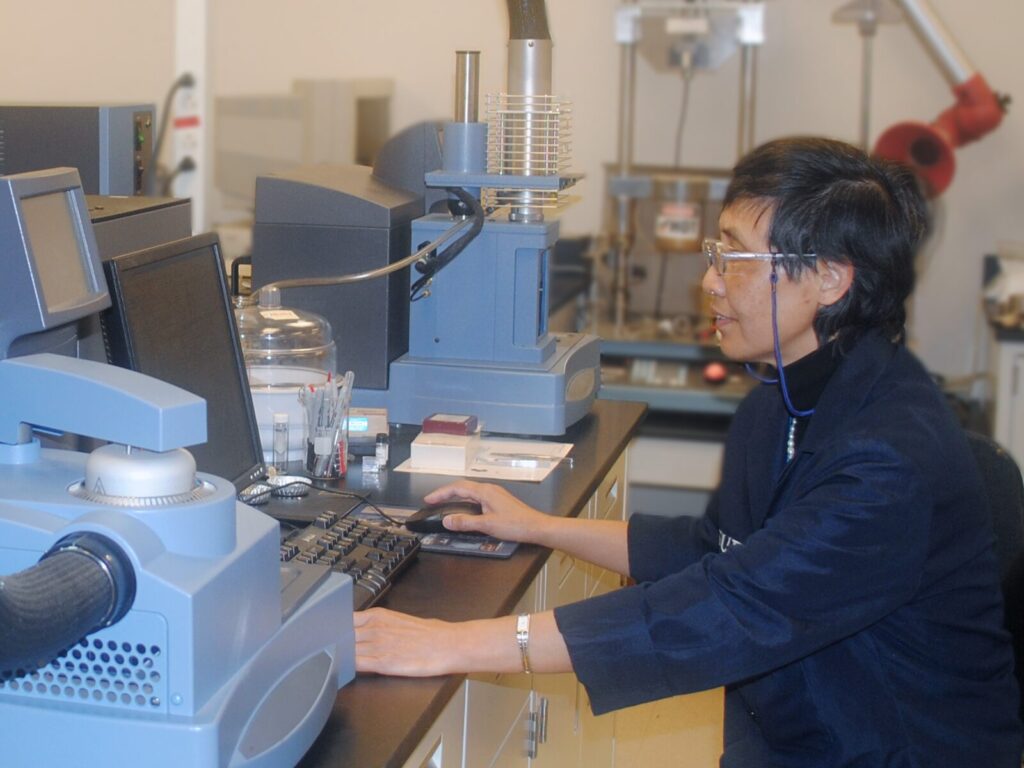The ATS chemical analysis lab provides Differential Scanning Calorimetry, or DSC analysis, for a variety of polymeric materials. DSC analysis is a technique used to determine what happens to polymers when heated. This particular technique is used to measure thermal transitions which are changes that take place when you heat a polymer. Examples of these changes are melting point, glass transition temperature, specific heat capacity, and heat of transition determinations.
How Does DSC Analysis Work?
DSC testing allows you to measure the rate of heat flow in a sample in relation to an empty reference pan. The DSC heats two pans, a sample pan containing your sample and an empty reference pan. The DSC is then programmed to heat both pans at a specific rate, usually 10°C or 20°C/minute. The sample pan will require more heat to keep it heating at the same rate as the empty reference pan because it contains more material.
DSC measures the difference in the amount of heat. When polymers melt they absorb heat and therefore this is called an endothermic reaction whereas a curing reaction gives off heat and is considered an exothermic reaction.
The types of materials that are commonly examined during DSC analysis are typically polymers. The properties measured are:
- Melting Point
- Heat of Fusion
- Curing Reaction Times
- Polymer Crystallinity
- Heat Capacity
The Goal of DSC Analysis
Our comprehensive DSC analysis services are designed to help you accomplish a number of unique goals in the most comprehensive and cost-effective ways possible. These include:
- Performing a complete analysis of the properties in question, looking for things such as proper melting temperature, reaction energy and temperature, crystalline phase transition, specific heat or heat capacity, oxidation induction times and more
- Verifying that your materials meet the thermal properties of your specifications and to characterize these properties to ascertain what impact they have on the performance of your samples
DSC analysis from ATS is also inherently customizable, allowing us to provide each client a unique service designed to address the needs of their own specific projects. Temperatures can range anywhere from sub-ambient to 725 degrees Celsius. Atmospheres can include nitrogen, oxygen, and controlled mixed gases. Sample sizes can range from 0.5mg to 100mg.
ATS’ Chemical Analysis Services
At Applied Technical Services, our goal is to provide you with all of the complete, actionable DSC analysis services that you need to make informed, safe decisions moving forward.
Contact Us
If your organization is in need of a DSC analysis services provider that you know you can depend on to get the job done right the first time, don’t delay – contact ATS today. Call +1 (888) 287-5227 or submit a form online to schedule DSC analysis in our qualified labs.



